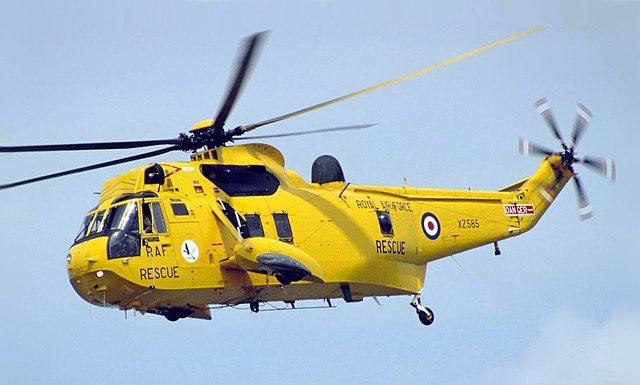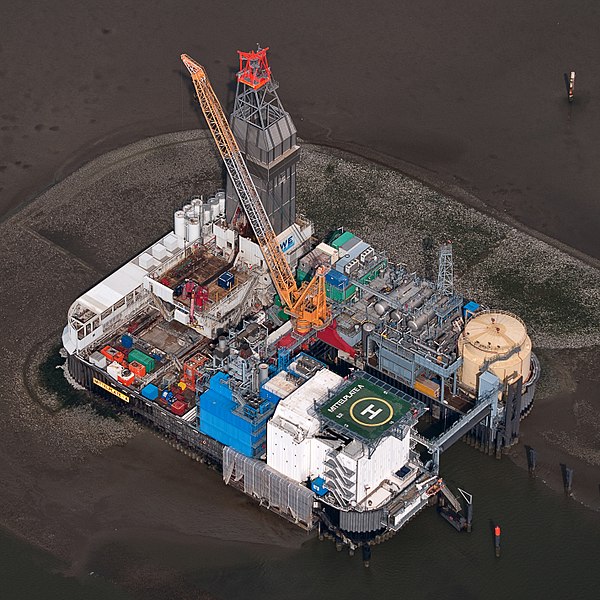Piper Alpha was an oil platform located in the North Sea about 120 miles (190 km) north-east of Aberdeen, Scotland. It was operated by Occidental Petroleum (Caledonia) Limited (OPCAL) and began production in December 1976, initially as an oil-only platform, but later converted to add gas production.
Piper Alpha on fire shortly after the failure of the Tartan gas riser
A fast rescue craft
An RAF search-and-rescue Westland WS-61 Sea King helicopter
The burnt remains of module A
An oil platform is a large structure with facilities to extract and process petroleum and natural gas that lie in rock formations beneath the seabed. Many oil platforms will also have facilities to accommodate the workers, although it is also common to have a separate accommodation platform linked by bridge to the production platform. Most commonly, oil platforms engage in activities on the continental shelf, though they can also be used in lakes, inshore waters, and inland seas. Depending on the circumstances, the platform may be fixed to the ocean floor, consist of an artificial island, or float. In some arrangements the main facility may have storage facilities for the processed oil. Remote subsea wells may also be connected to a platform by flow lines and by umbilical connections. These sub-sea facilities may include one or more subsea wells or manifold centres for multiple wells.
Oil platform P-51 off the Brazilian coast is a semi-submersible platform.
Oil platform Mittelplate in the North Sea
Refurbishment Station for Drilling Rigs – Corpus Christi Bay
Oil wells just offshore at Summerland, California, before 1906.








